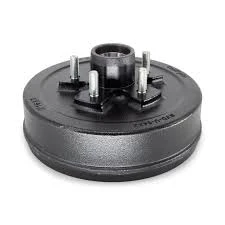
-
 Afrikaans
Afrikaans -
 Albanian
Albanian -
 Amharic
Amharic -
 Arabic
Arabic -
 Armenian
Armenian -
 Azerbaijani
Azerbaijani -
 Basque
Basque -
 Belarusian
Belarusian -
 Bengali
Bengali -
 Bosnian
Bosnian -
 Bulgarian
Bulgarian -
 Catalan
Catalan -
 Cebuano
Cebuano -
 Corsican
Corsican -
 Croatian
Croatian -
 Czech
Czech -
 Danish
Danish -
 Dutch
Dutch -
 English
English -
 Esperanto
Esperanto -
 Estonian
Estonian -
 Finnish
Finnish -
 French
French -
 Frisian
Frisian -
 Galician
Galician -
 Georgian
Georgian -
 German
German -
 Greek
Greek -
 Gujarati
Gujarati -
 Haitian Creole
Haitian Creole -
 hausa
hausa -
 hawaiian
hawaiian -
 Hebrew
Hebrew -
 Hindi
Hindi -
 Miao
Miao -
 Hungarian
Hungarian -
 Icelandic
Icelandic -
 igbo
igbo -
 Indonesian
Indonesian -
 irish
irish -
 Italian
Italian -
 Japanese
Japanese -
 Javanese
Javanese -
 Kannada
Kannada -
 kazakh
kazakh -
 Khmer
Khmer -
 Rwandese
Rwandese -
 Korean
Korean -
 Kurdish
Kurdish -
 Kyrgyz
Kyrgyz -
 Lao
Lao -
 Latin
Latin -
 Latvian
Latvian -
 Lithuanian
Lithuanian -
 Luxembourgish
Luxembourgish -
 Macedonian
Macedonian -
 Malgashi
Malgashi -
 Malay
Malay -
 Malayalam
Malayalam -
 Maltese
Maltese -
 Maori
Maori -
 Marathi
Marathi -
 Mongolian
Mongolian -
 Myanmar
Myanmar -
 Nepali
Nepali -
 Norwegian
Norwegian -
 Norwegian
Norwegian -
 Occitan
Occitan -
 Pashto
Pashto -
 Persian
Persian -
 Polish
Polish -
 Portuguese
Portuguese -
 Punjabi
Punjabi -
 Romanian
Romanian -
 Russian
Russian -
 Samoan
Samoan -
 Scottish Gaelic
Scottish Gaelic -
 Serbian
Serbian -
 Sesotho
Sesotho -
 Shona
Shona -
 Sindhi
Sindhi -
 Sinhala
Sinhala -
 Slovak
Slovak -
 Slovenian
Slovenian -
 Somali
Somali -
 Spanish
Spanish -
 Sundanese
Sundanese -
 Swahili
Swahili -
 Swedish
Swedish -
 Tagalog
Tagalog -
 Tajik
Tajik -
 Tamil
Tamil -
 Tatar
Tatar -
 Telugu
Telugu -
 Thai
Thai -
 Turkish
Turkish -
 Turkmen
Turkmen -
 Ukrainian
Ukrainian -
 Urdu
Urdu -
 Uighur
Uighur -
 Uzbek
Uzbek -
 Vietnamese
Vietnamese -
 Welsh
Welsh -
 Bantu
Bantu -
 Yiddish
Yiddish -
 Yoruba
Yoruba -
 Zulu
Zulu
Effective Methods for Spray Painting Brake Drums for Optimal Performance and Durability
The Art of Spray Painting Brake Drums A Step-by-Step Guide
Brake drums are a crucial component of a vehicle's braking system, often overlooked when it comes to maintenance and aesthetic appeal. While their primary purpose is functional, there’s no harm in adding a touch of style to these essential parts. Spray painting brake drums can not only enhance their appearance but also protect them from corrosion and wear. In this article, we will explore the process of spray painting brake drums, ensuring you achieve a professional-looking finish.
Step 1 Gather Your Materials
Before you begin, it's important to gather all necessary materials. You will need
- Brake drum cleaner - Sandpaper or a wire brush - Masking tape - Newspapers or drop cloths - Primer for metal surfaces - High-temperature spray paint (specifically designed for brake components) - Clear coat (optional for added protection) - Safety goggles and gloves
Step 2 Prepare the Brake Drum
Start by removing the brake drum from the vehicle. This is essential not only for ease of painting but also for ensuring you don’t get paint on other components. Once removed, clean the brake drum thoroughly using brake cleaner to remove dust, grease, and any residual materials. After cleaning, inspect the surface for rust or damage. If there is rust, use sandpaper or a wire brush to eliminate it, creating a smooth surface for painting.
Step 3 Set Up Your Workspace
Find a well-ventilated area to work on your project. Lay down newspapers or a drop cloth to protect your work surface from paint splatter. Make sure to wear safety goggles and gloves to protect yourself from fumes and debris during the preparation and painting processes.
Step 4 Mask Off Areas
spray paint brake drums

To avoid getting paint where it is not wanted, use masking tape to cover any threaded areas or components that should remain unpainted. This will provide a clean, professional finish and save you the hassle of removing excess paint later.
Step 5 Apply Primer
Once your brake drum is prepped and masked, apply a layer of primer designed for metal surfaces. This step is crucial as it helps the paint adhere better and provides a more uniform finish. Allow the primer to dry according to the product instructions.
Step 6 Spray Paint the Brake Drum
With the primer dry, it’s time to spray paint. Choose a high-temperature spray paint designed for brake components, as these can withstand the heat generated during braking. Hold the can approximately 6-12 inches from the surface and spray in thin, even coats. It’s better to apply several light coats rather than one heavy coat to avoid drips and runs.
Step 7 Finish with Clear Coat
For added protection and a glossy finish, you may want to apply a clear coat after the paint has dried. This step is optional but can enhance durability significantly.
Conclusion
Spray painting brake drums can be a fun and rewarding DIY project. Not only does it improve the appearance of your vehicle, but it also offers an extra layer of protection against the elements. With the right materials and steps, you’ll have beautifully painted brake drums that enhance your vehicle's overall aesthetic while ensuring functionality. So grab your materials and get started on this easy automotive upgrade!
-
Rear Drum Brakes Maintenance TipsNewsAug.04,2025
-
Key Components Affecting Brake Drum FunctionNewsAug.04,2025
-
Important Inspection for Truck Drum BrakeNewsAug.04,2025
-
How to Prepare for Changing Rear Drum BrakesNewsAug.04,2025
-
Essential Tools for Cleaning Drum Brakes ProperlyNewsAug.04,2025
-
Brake Drum Function GuideNewsAug.04,2025
-
Safety Features of Red Brake DrumsNewsAug.01,2025
